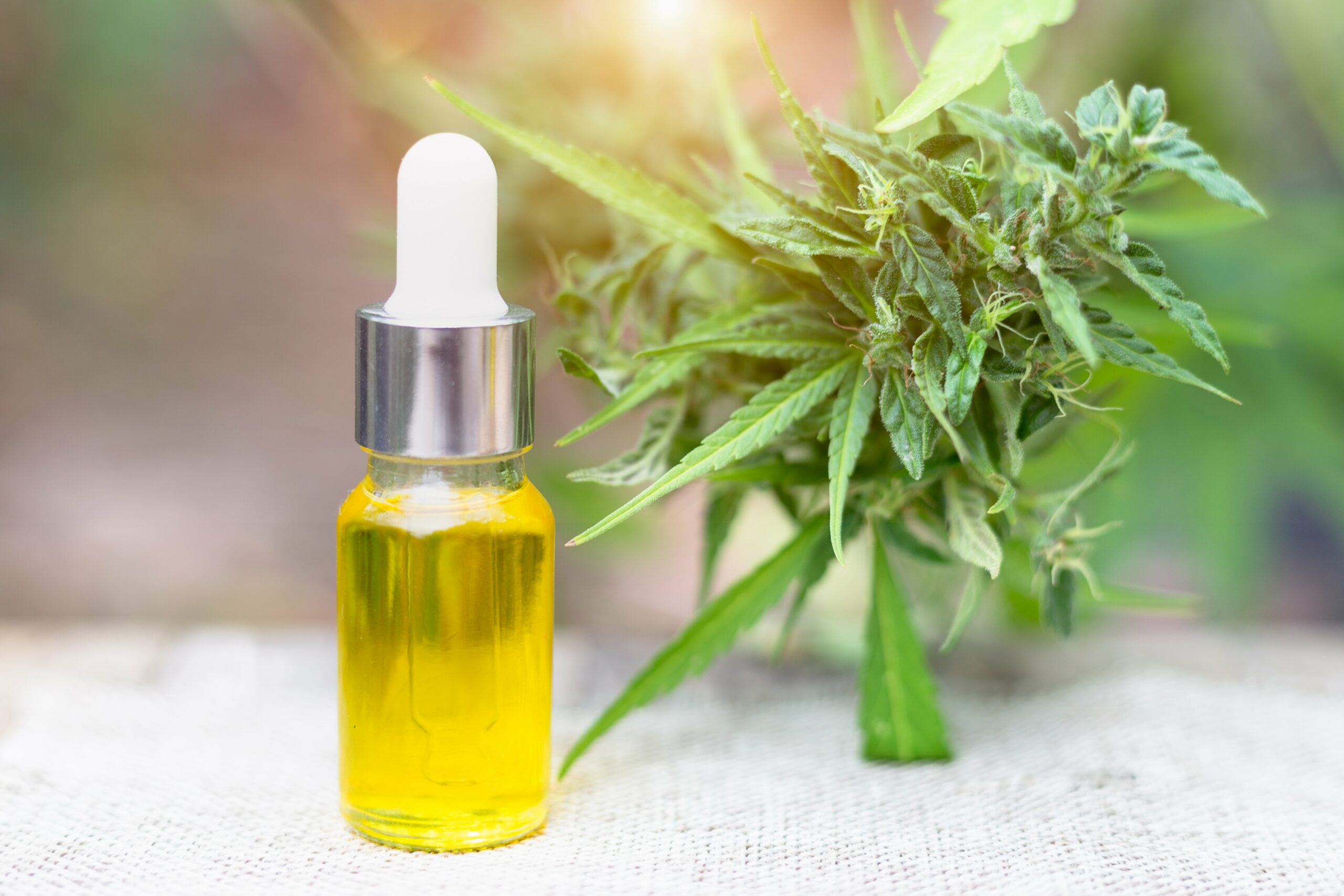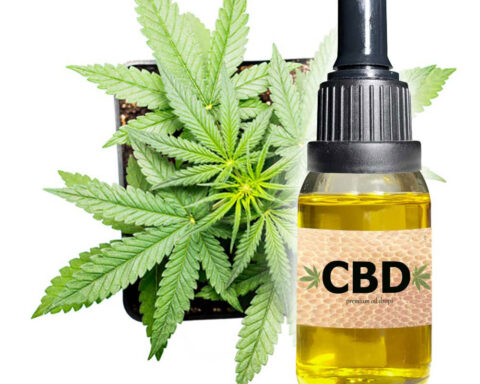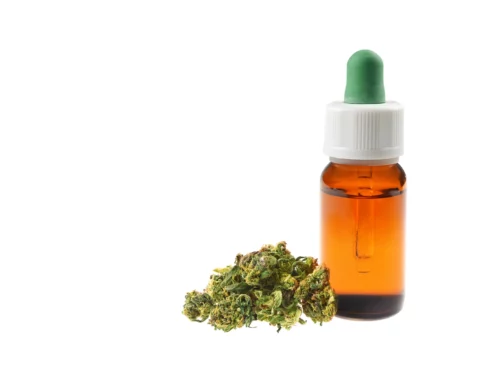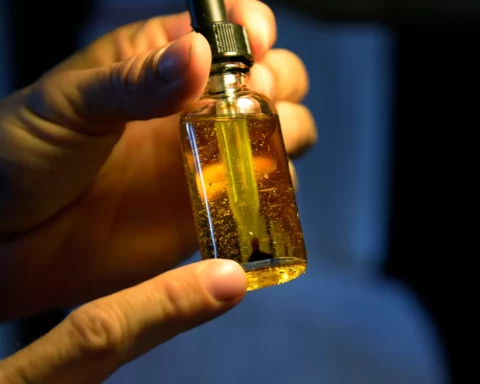Shop 100+ best CBD oil in UK. Choose from mild and strong sublingual CBD oil products with cannabinoids, terpenes, and flavonoids. Up to 70% off all hemp oil.
Cannabidiol products are becoming a popular trend in the UK. While most of them are sold as food supplements and medicines, any product with more than 0.2% THC is illegal in the UK. Besides, the cannabis-derived oil must be hemp-derived and grown locally. CBD oil is a substance made from CBD extract mixed with a carrier oil such as hemp seed oil or coconut oil. Cannabis oil in the UK is available in three different spectrums, depending on the method of extraction used to obtain CBD. Products can be made using full-spectrum, broad-spectrum, or CBD isolate, all with different compounds and concentrations. CBD oil tinctures are the most preferred way of consuming CBD because they do not cause much fuss when taken. However, the UK has not approved CBD tinctures for medicine, food, or beauty products. Finding the correct serving can be tricky. Remember, people are different, and factors such as bioavailability, body mass, and tolerance dictate the amount of CBD consumed.
What Is CBD Oil in the UK
In 2018, the UK government passed a bill legalizing CBD-based products and some cannabis compounds. However, CBD oil in the UK must be derived from hemp grown outside the UK and should not contain more than 0.2% THC or more than 1 mg THC per bottle. The hemp plant contains a high CBD concentration with low THC levels.
What Is CBD Oil?
CBD oil is a substance that contains cannabidiol extract mixed with carrier oil such as hemp seed oil or coconut MTC oil. The cannabis plant contains one hundred-plus natural compounds known as cannabinoids, of which CBD is one of them. CBD is available in many products such as oils, body lotions, creams, vapes, sublingual, capsules, tablets, pastes, and edibles such as gummies and sweets. Cannabis oil is known for its versatility; it can be applied topically or consumed in a tincture. As aforementioned, there are three types of CBD oil based on different compounds and concentrations. Full-spectrum oil contains all compounds of the cannabis plant, including THC, terpenes, flavonoids, and other cannabinoids.
On the other hand, broad-spectrum oil contains all other compounds of the cannabis plant except THC. In contrast, the isolated oil contains CBD as the only compound from the cannabis plant. The isolate is the purest form of CBD oil with no impurities. It contains neither THC nor cannabis terpenes.
What Is CBD Used For?
Proponents of CBD products believe that CBD can be used to treat epilepsy, pain, stress, anxiety, depression, and skin conditions (Evans, 2020). However, research is still ongoing; more evidence is needed to support CBD’s medical efficacy. Early studies looking into the uses of CBD oil found some exciting results while investigating the role of cannabidiol in treating epilepsy. Espinosa (2021) stated that cannabinoids have anticonvulsant properties and 100% purified cannabidiol. Cannabidiol-enriched extracts are now being used to treat epilepsy in humans.
Other studies indicate that CBD can manage anxiety, stress, and depression. Although research is still in its infancy, CBD may also be a potential remedy for skin conditions such as acne, psoriasis, eczema, and many others (Evans, 2020). CBD may also be used to reduce inflammation and neuropathic pain. It interacts with the endocannabinoid system to regulate mood, memory, and other physiological and cognitive functions (de Almeida & Devi, 2020).
What Does CBD Oil Do?
CBD oil products have been increasing in popularity in recent years. Cannabidiol treats various ailments, including; pain, sleep disorders, stress, and anxiety (Baswan et al., 2020). CBD oil applied topically or as sublingual drops, promotes calmness and relaxation in your mind and body.
How Does CBD Oil Make You Feel?
Contrary to what many believe, CBD oil cannot get you high. Unlike THC, the main intoxicating compound of the cannabis plant, CBD cannot alter your state of mind. Instead, the cannabis derivative provides calming and relaxing effects to your mind and body. Additionally, it soothes pain and inflammation and helps you maintain focus.
Endocannabinoid System and CBD
The endocannabinoid system (ECS) is a network of nerves that run throughout the body. It comprises endocannabinoids, enzymes, and proteins. The ECS has two primary cannabinoid receptors, CB1 and CB2, in the central and peripheral nervous systems. All vertebrates and some invertebrates have the endocannabinoid system, which significantly regulates homeostasis within their bodies. The system regulates body functions, such as pain, mood, memory, reproduction, appetite, digestion, anxiety, and brain-signaling systems. Plant-based cannabinoids such as CBD mimic the activity of the body’s natural endocannabinoids to help the ECS perform its functions. Scientists are not sure how CBD interacts with the endocannabinoid system. However, they are sure that CBD does not bind with CB1 and CB2 receptors like THC and other cannabinoids. Instead, CBD influences their activity, allowing for several therapeutic benefits that many people associate with CBD. Also, CBD influences non-cannabinoid receptors. For example, some studies indicate that CBD modulates the serotonin receptor, which is responsible for elevating mood and providing anti-anxiety effects. According to Erickson (2020), CBD interacts with the endocannabinoid system to soothe different types of pain, including back pain, joint pain, muscle pain, and nerve pain.
The Benefits of CBD Oil
Anxiety Relief
A fair amount of data shows that CBD induces the serotonin receptor to regulate fear and other anxiety-related symptoms. According to Blessing et al. (2015), CBD has been can treat anxiety disorders, such as generalized anxiety disorder, social anxiety disorder, post-traumatic stress disorder, panic disorder, and obsessive-compulsive disorder.
Skin Health
Baswan et al. (2020) investigated the therapeutic potential of cannabidiol for skin health and disorders. They found that topical cannabidiol can be effective for skin conditions such as acne, atopic dermatitis, skin pigmentation, and other skin-related ailments. CBD oil applied topically can be used to improve the skin and manage symptoms related to various skin disorders.
Pain and Inflammation
CBD contains anti-inflammatory properties that are effective for the management of pains and inflammations. CBD influences the cannabinoid receptors by stimulating cell responses which induce pain-relieving signals. However, it does not directly bind to cannabinoid receptors such as THC. It blocks pain-signaling pathways, thus reducing pain and inflammation (Lu et al., 2018).
Other Benefits of CBD Oil
- Reduces seizure in rare types of the epilepsy syndrome
- CBD lowers blood pressure, thereby reducing the risks of heart diseases
- Manages addiction
- Prevents nerve damage
- Improves bone health
- Alleviates symptoms related to cancer treatment
- Improves sleep quality
How to Take CBD Oil Drops
You can consume CBD oil by ingesting it directly or through sublingual uptake. Ingesting may take longer to deliver the effects of CBD; hence, many users prefer taking it sublingually. Sublingual uptake involves putting a few drops of CBD oil under your tongue and holding them for about 30 to 90 seconds before swallowing. The oil taken through the sublingual method reaches your bloodstream quickly and in higher concentrations; the area under your tongue is full of blood capillaries and permeable membranes, which allow faster absorption and increased bioavailability.
CBD Dosage
Determining the correct dose for your favorite CBD product can be tricky. There is no standard dosage for CBD products; however, CBD dosage depends on factors such as the treatment type, the user’s body mass, CBD potency, and tolerance to CBD. To find your ideal CBD dose, start with a smaller dose, such as 1 mg to 2 mg, and gradually increase it until you find the one that works well for you. In most cases, many CBD users prefer 20 mg to 40 mg CBD per dose. As mentioned above, our body chemistry is different; some people may need 30 mg, while others may require more than 50 mg of CBD to experience the same results.
CBD Oil for Pain
There are shreds of evidence showing that CBD may produce effective results in managing chronic pain. Some studies indicate that CBD may; reduce chronic pain, manage neuropathic pain, reduce back pain, and reduce inflammation and pain related to health conditions such as arthritis, multiple sclerosis, diabetes, and cancer. While this seems a promising option for managing pain, researchers have not yet proved its full potential as an effective treatment for cancer pain.
CBD Oil for Anxiety
As mentioned earlier, CBD has been used as a more natural way to manage anxiety disorders, including social anxiety, panic disorder, and others, but more research is needed. Preliminary studies indicate that CBD works by regulating serotonin levels in the brain. Serotonin regulates mood, behavior, digestion, and sleep, among other functions. CBD works similarly to anti-anxiety drugs by increasing serotonin levels, which helps alleviate anxiety symptoms.
CBD Tincture Drops for Sleep
CBD tincture drops for sleep are taking over the CBD industry in the UK. They are used as an alternative treatment for sleep disorders. While most studies indicate that CBD tinctures reduce the severity of insomnia, others find conflicting results. Tinctures are also among the fastest ways of delivering the effects of CBD into the body. CBD tincture drops are taken through the sublingual uptake. It involves placing a few drops under your tongue and holding them for a few seconds before swallowing. The applicability of CBD tincture drops is also limited as there is limited information about dose-related effects. Like other forms of CBD, the tinctures improve sleep quality and reduce sleep disturbances and onset latency. Also, CBD may relieve body tension, enhancing a sense of calmness and relaxation, which promotes sleep. Its non-intoxicating nature makes tincture drops effective for elevating your mood without mind-altering effects. Lastly, CBD tincture drops help you maintain focus and enhance productivity.
CBD Tincture Drops for Stress
According to Moltke &Hindocha (2021), CBD often manages self-perceived stress, anxiety, sleep, and other stress-related symptoms in large doses. However, these effects depend on demographic traits. Mirand (2022) also suggested that CBD reduces body tension allowing your mind and body to unwind when your brain is over stimulated.
FAQS
What Is CBD?
Cannabidiol, or CBD, is a naturally-occurring compound of the cannabis plant. It is highly concentrated in the hemp plant, a cannabis family. Hemp is a type of cannabis plant that contains less than 0.3% THC. Marijuana, on the other, is the cannabis strain with more than 0.3% THC, usually 5% to 35 % THC content. Compared to THC, CBD is not intoxicating. It does not cause any mind-altering.
How Long Do The Effects of CBD Oil Last?
The duration of CBD effects in the body depends on body chemistry, the amount of CBD oil you consume, and the method you use to consume the oil. Generally, the effects last within 2 to 7 hours. Oral ingestion takes the longest to deliver effects, although such effects are long-lasting. While sublingual may be quicker to deliver the effects of CBD, its effects only last between 3 to 5 hours.
What are CBD Oil Drops Good For?
CBD oil drops are suitable for providing the fastest relief; unlike oral ingestion, the oil drops bypass the lengthy digestive process when consumed sublingually.
Is Hemp Oil the Same as CBD?
Hemp oil is not the same as CBD oil. Hemp oil is obtained by cold-pressing hemp seeds, while CBD oil is obtained from the hemp plant’s flowers, leaves, and stems. Although derived from the same plant, hemp seed oil does not contain CBD.
How Long Does CBD Oil Take To Work?
Generally, the effects of CBD oil begin to kick in 10 to 15 minutes after the sublingual administrations. Edible and topical CBD oil may take longer, usually 1 to 2 hours, before its effects kick in.
How Long Do CBD Oil Drops Last?
It takes approximately five days to eliminate a drug from your system. Likewise, CBD stays in your body for about three to four days.
Why Use CBD Oil?
CBD oil is an alternative treatment for various health conditions, including anxiety disorders, sleeps disorders, and skin conditions. The cannabis derivative also enhances calmness and relaxation.
What Is the Difference between Isolate, Broad-spectrum, and Full-spectrum CBD Oil?
Full-spectrum has all hemp compounds, including THC, terpenes, flavonoids, and other cannabinoids. On the other hand, broad-spectrum CBD contains all other cannabinoids except THC. In contrast, CBD isolate contains cannabidiol as the only compound from hemp.
Is All Cannabidiol (CBD) Legal in the UK?
Cannabidiol is legal in the UK if it contains less than 0.2% THC content.
Will CBD Oil Get You High?
CBD sourced from hemp cannot get you high because it contains undetectable amounts of THC. In the UK, CBD has 0.2%, insufficient to cause a high feeling.
How Many Hemp Oil Drops Should I Take?
Approximately 3 to 5 drops per day are enough for a start. You can gradually increase the number of drops until you find the amount that works well for you.
Why Is CBD Oil Now In Beauty Products?
CBD contains anti-inflammatory, antibacterial, antioxidant, and moisturizing properties that can be effective for skin health and overall beauty regimen.
Why Can’t I Find Any Health Claims On CBD Products?
UK laws prohibit CBD companies from making medical claims on the products. CBD is a supplement rather than an approved treatment for medical conditions.
Is CBD a Medicine?
Claims supporting CBD as medicine are still under debate. Currently, many CBD products marketed in the high street and online shops are not approved by FSA.
Is CBD Psychoactive?
CBD is psychoactive but not in the same way as THC. CBD can regulate your mood and moderate other brain functions such as anxiety, psychosis, and more. However, it does not cause euphoria or cause any intoxicating effect like THC.
Can CBD Make Me High?
Hemp-derived CBD cannot get you high unless it contains a THC content of more than 0.3%.
Are CBD Products Safe?
CBD products are well-tolerated in the body with minimal side effects such as diarrhea, drowsiness, and fatigue.
What Is Meant by Broad-spectrum CBD?
Broad-spectrum CBD typically contains no THC. Some products may contain trace amounts of THC, although it cannot cause any intoxicating effect nor show up in a drug test.
What Is Meant by Full-spectrum CBD?
Full-spectrum is a cannabis extract with all compounds of the cannabis plant, including THC, plant terpenes, flavonoids, and other cannabinoids such as CBG and CBN. The full spectrum is the strongest when used in a CBD product.
How Much CBD Should I Take?
Unless your doctor recommends a specific dose, 20 to 25 mg CBD daily is a good starting point. However, some people may consume up to 50 mg or more daily. If you need to increase your dose, make it gradual until you find the one that works well for you.
What Strength CBD Should I Use?
While there is no standard definition of the strength of CBD, most people prefer the high potency of about 50 mg of CBD per serving. However, it is recommended that you begin with low potency and gradually increase until you find your ideal measure.
How Much Is CBD in CBD Products?
Most CBD products contain between 20mg to 2500 mg CBD content.
How Much Is CBD in CBD Oil?
Generally, CBD oil contains 5% to 30 % CBD.
Why Does CBD Taste Bad?
Full-spectrum and broad-spectrum CBD may have a bitter earthy taste because of terpenes. Terpenes are compounds found in the cannabis plant and contribute to the taste and scent produced by CBD products.
Why Is CBD Expensive?
CBD products are generally expensive because their extraction is equally expensive.
How Long Does it Take to Absorb CBD?
CBD oil tinctures are ordinarily absorbed into the bloodstream within 30 to 60 seconds.
How Long Does CBD Stay in My System?
CBD typically stays in your body for about three and a half days.
Are CBD Products Age-restricted? Can I take them During Pregnancy?
State laws may vary; however, you need to be 18 years and older to purchase CBD products. Pregnant women are also advised to avoid CBD products unless prescribed by a doctor.
Can CBD Interact With My Medications?
CBD interacts with other medications and may worsen the side effects of those medications. Consult with your doctor before self-medicating with CBD.
Is CBD Addictive? Can Products be abused?
CBD is not addictive. As much as cannabis is associated with substance abuse disorder, CBD products can be used to suppress substance abuse and addiction.
What about Tests for Cannabis Abuse and CBD?
Unlike THC, you cannot test positive in a drug test for using CBD products. Full-spectrum CBD may appear in a drug test but cannot cause an intoxicating effect.
Conclusion
CBD oil tinctures or CBD oil oral drops are very popular in the UK, probably because most people do not want a fuss when consuming CBD oil for the first time. Tinctures are easy to consume and provide quicker effects compared to most methods used in consuming CBD oil. Effects of CBD oil tincture begin to kick in 10 to 25 minutes after the sublingual uptake. However, compared to other methods, such as topical application and oral ingestion, their effects are not long-lasting. Additionally, CBD oil stays in your system for three to five days before it is completely eliminated. Due to its non-intoxicating nature, CBD cannot get you high nor show up in a drug test.
References
Baswan, S. M., Klosner, A. E., Glynn, K., Rajgopal, A., Malik, K., Yim, S., & Stern, N. (2020). Therapeutic potential of cannabidiol (CBD) for skin health and disorders. Clinical, cosmetic and investigational dermatology, 13, 927.
Blessing, E. M., Steenkamp, M. M., Manzanares, J., & Marmar, C. R. (2015). Cannabidiol as a potential treatment for anxiety disorders. Neurotherapeutics, 12(4), 825-836.
de Almeida, D. L., & Devi, L. A. (2020). Diversity of molecular targets and signaling pathways for CBD. Pharmacology research & perspectives, 8(6), e00682.
Erickson, K. CBD Oil for Pain: Natural Relief and Management.
Espinosa-Jovel, C. (2021). Cannabinoids in epilepsy: Clinical efficacy and pharmacological considerations. Neurología (English Edition).
Evans, J. (2020). The Ultimate Guide to CBD: Explore the World of Cannabidiol. Fair Winds Press.
Gloss, D., & Vickrey, B. (2014). Cannabinoids for epilepsy. Cochrane database of systematic reviews, (3).
Lu, J., Fan, S., Zou, G., Hou, Y., Pan, T., Guo, W., … & Xiong, W. (2018). Involvement of glycine receptor α1 subunits in cannabinoid-induced analgesia. Neuropharmacology, 133, 224-232.
Mirand, N. How Will CBD Make Me Feel?.
Moltke, J., & Hindocha, C. (2021). Reasons for cannabidiol use: a cross-sectional study of CBD users, focusing on self-perceived stress, anxiety, and sleep problems. Journal of cannabis research, 3(1), 1-12.
- Is Mushroom Coffee Worth the Hype? An Expert’s Take - April 19, 2024
- Missionary Position – Least Likely To Bring You To Climax - April 7, 2023
- Vibrators could put you in Jail - March 31, 2023









